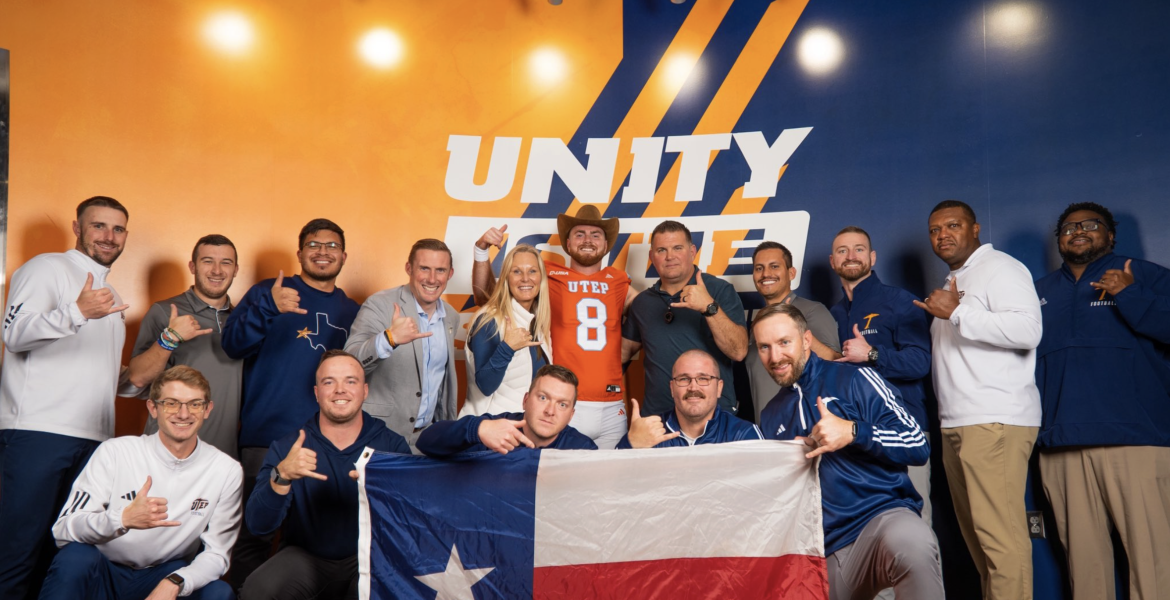AUSTIN, TX -- Seven years ago, Scott and Melody Stephens were preparing to send their son, Cody, off to college at Tarleton State University, where he earned a football scholarship.
The 6-foot-9, 289-pound offensive tackle towered over his opponents and created nightmares while starting at Crosby High School just outside of Houston. However, his career and life were cut short due to a hidden heart defect that nobody knew about and caused him to go into Sudden Cardiac Arrest. He died in his dad’s recliner on May 6, 2012, at 18 years old. His jersey was temporarily retired at both Tarleton and Crosby.
His parents then set out to make sure no other family had to endure that pain. On Monday, they got one step closer to that goal after the Texas Senate passed the bipartisan House Bill 76, named to honor Cody’s football number.
It was an emotional day for the Stephens.
“You never let yourself believe it’s gonna happen so you keep pushing, pushing, pushing,” Scott said. “Then, all of a sudden, the wall crumbles. It’s kinda ironic.”
It had already passed through the House of Representatives and Education Committee. It now awaits Gov. Greg Abbott’s signature to become a formal law.
The bill was spearheaded by Republican Representative Dan Huberty, Chairman of the House Education Committee, and Democratic Senator Carol Alvardo, a member of the Higher Education Committee. Without their help, Stephens feels this bill would not have been passed.
“The gratefulness I have for Dan Huberty … The man was a warrior for the kids of Texas. Then, Senator Carol Alvardo for carrying it to the Senate,” Stephens said. “Just disbelief and excitement are the two words I’m trying to think of. It’s a surreal moment. You fight for something for seven years, then all of a sudden, boom, it’s over. You won.”
The bill proposes that all athletes going through a mandatory physical screening to participate in University Interscholastic League athletics receive an optional electrocardiogram to detect any possible heart defects. Under the bill, parents will be allowed to opt their child out of the scan if they wish.
“We’ve got a big task at hand. We’re gonna need all hands on deck to accomplish this goal of if somebody chooses to have an ECG, that it’s available for them,” Stephens said. “We’ve got about a year or so to get ready. The UIL and us are gonna sit down at the table. I’ve been invited to help on the rule making. That’s the next step, start figuring out how we’re gonna do it, where to put the question on the pre-participation physical. There’s still a lot of work to be done.”
When the Stephens family founded the Cody Stephens Foundation after their son’s sudden death, they had a dream -- “Screen ‘em all,” as Scott would say.
That meant honoring Cody’s memory by putting boots on the ground in Austin, Crosby and throughout Texas to push for change. During the 2012 Crosby Fair and Rodeo, where Cody was set to show his pig, lamb and steer, the foundation raised $76,000. Now, the foundation has raised roughly $1.5 million, Stephens said. More than 240 schools, roughly 30% of Texas, and over 130,000 students across the state have been screened through the foundation, according to Stephens.
It was tough-sledding early on in the Capitol for Scott, who said he started his push with a megaphone and an emotional message not wanting another family to go through the same pain they did.
Lawmakers and doctors wanted proof that it would work. They weren’t sure if there was enough science to back the scan’s effectiveness. During this year’s hearing, Scott brought all the science he needed to support the scan.
“I pointed to a young man sitting behind me. I said ‘Jaden Britton is here today. Stand up, Jaden,’” Scott recalled. “Jaden had an ECG and had open heart surgery after our ECG. I said I don’t need anymore science, there’s enough right there. But I’ve got a hundred of these young people walking around Texas who’ve had open heart surgery after being discovered from a simple ECG. That’s all the science I need.”
Roughly 2% of the screenings yield a red flag that could need further evaluation and 1-in-900 need to have surgery, Scott said.
A story of a kid in Lubbock came to Stephens’ mind. He was screened and found to have a genetic condition that could lead to Sudden Cardiac Arrest and also affect the rest of his family. After alerting his family to the abnormality, they decided to each get evaluated.
“By the time it was done, in his extended family, they had found six with the same condition,” Scott said. “All from a simple, $15 ECG at the time.”
But Stephens didn’t think he’d be at this point seven years ago. He thought he’d be reevaluating what needed to be done or even closing the foundation. He just wanted to put everything he had into this movement to honor his son. They came close in 2015 with HB 767, which passed through the House, but was struck down in the Education Committee almost four years ago to the day in 2015.
“I didn’t know how it would shake out,” Stephens said. “I just knew that I was gonna pour myself into this for seven years and have no regrets that I didn’t cut a corner, that I didn’t fight a battle to be fought for these kids. I fully expected to sit down at the end of seven years and reassess going forward, which was ‘Hey, we’ve got 30% of the state doing this now,’ without a law or possibly shutting it down because it’s very taxing. It’s cost me a lot of, not only money, but a lot of wear and tear on my body and Melody’s too.
“To say that we’d be where we are in seven years, I was hopeful. I knew there were a lot of good people behind us, but I wasn’t prepared to say, ‘It’s gonna take seven years and we’re gonna get this thing done.”
Since the bill has received publicity in the Houston and statewide media, Scott estimates the foundation has received $60,000 in donations.
To learn more about the Cody Stephens Foundation or donate, you can visit their website.
Subscribe to the LIVE! Daily
Required






Post a comment to this article here: